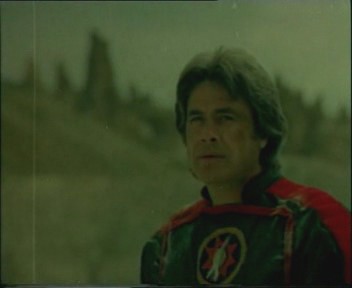Let the Bullets Fly
aka 讓子彈飛 aka Rang zidan fei

2010![]()
Written by Jiang Wen, Jue So-Chun, Shu Ping, Guo Jun-Li, and Wei Xiao
Directed by Jiang Wen
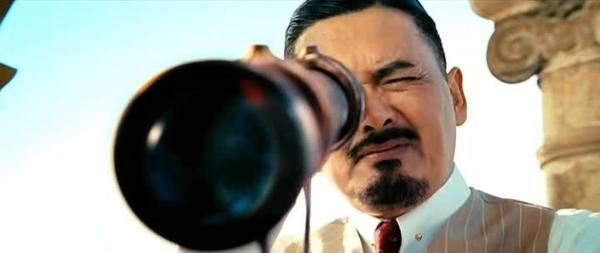
An Eastern Western set during the 1920s warring states period of China, where greed, exploitation, and violence were all too common. But it is dark times as those where heroes emerge, heroes that don’t fit the spandex-wearing definition of the word, but heroes that are real people who come in to solve big problems. Let the Bullets Fly sets the hero loose, with his own set of morals and convictions, and he pushes back against those who would stand in the way of his freedom.
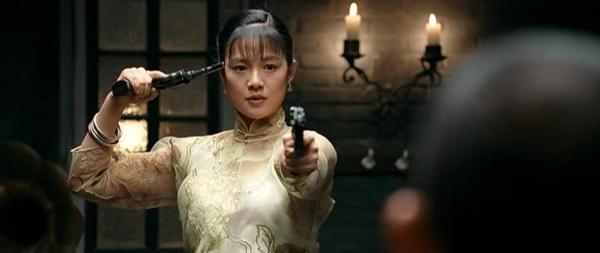
Based on a book by Ma Shitu, Let the Bullets Fly features action, adventure, and revolutionary language. It is a minor power struggle against the backdrop of larger power struggles. We see how the struggles of life affect all levels, from important businessmen to government officials to the criminal underclass to the village peasants.
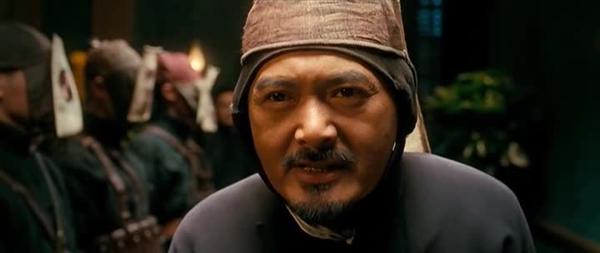
After a train robbery, Pocky Zhang’s band of “noble” bandits con their way into an unsuspecting town posing as the new appointed governor. But the town is controlled by a ruthless businessman who is used to running things his way as the townspeople suffer. Zhang isn’t about to take crap from anyone, setting into motion a war between to different types of criminals with two radically different philosophies.
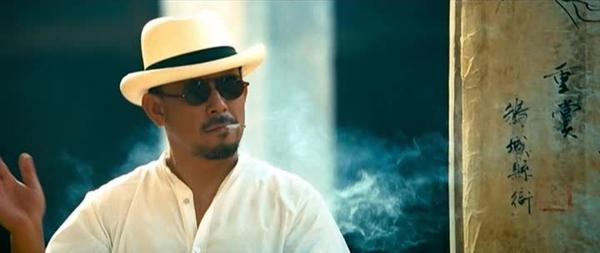
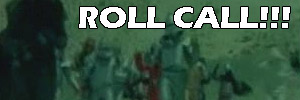
|
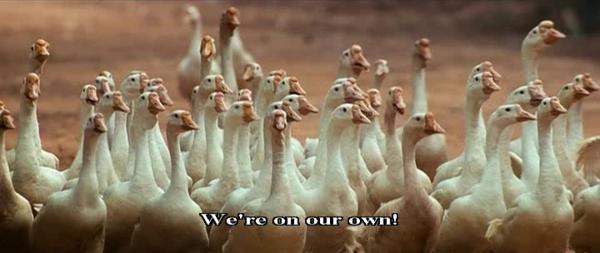

After robbing a train containing an imperial contingent, Ma Bangde and his wife are the only two survivors. Ma Bangde pretends to be the adviser of the governor and convinces Pocky Zhang to pretend to be the appointed governor.
Pocky Zhang and his men enter Goose Town under the guise of being the newly appointed governor. Ma Bangde sees this as a chance to loot the town’s treasury, but Pocky Zhang has ethics, and he doesn’t take money from the poor. He’s perfectly happy to force the town’s rich family heads to pay up.

Goose Town is run by the local godfather Master Huang Silang, who insults Pocky Zhang from moment one by sending his hat to greet Zhang. (and, coolly enough, the hat is seen sitting atop Zhang’s horse’s head in the very next scene!) Huang Silang spends his time sitting in his giant mansion looking into the rest of the town via telescope.
Most town governorships of the time were positions bought by the rich as a tool for them to then get more money via fleecing the town. Goose City has a problem that the rapid succession of prior corrupt governors have claimed the past 90 years of taxes. The towns are generally run by the local rich families, Huang Silang being the richest of them all. He basically is the real government in town, his men have full impunity to go through town and do whatever. His insults and wealth and arrogant men causing trouble make him target number one for Pocky Zhang to take money from. It doesn’t hurt that Huang openly admits to graft and using violence to get his way.


Pocky Zhang didn’t come all this way to be a governor who kowtows to the local rich lords. He deliberately starts trouble to set an example of how the townspeople shouldn’t bow before anyone, saying “No one is worth kneeling to, especially me!” He also claims he “brought three things – justice, justice, and goddamned justice!”
Zhang is a veteran of revolution, having served under one of the smaller and defeated generals. He became an outlaw as it’s the only way he can be free to do what he wants. As the leader of the gang, he also became a father figure, not wanted his adopted godson to follow in his footsteps, but to study abroad.
Huang Silang retaliates by framing Zhang’s godson and tricking him to commit suicide to prove his innocence. At this point Zhang vows to destroy Huang, not just take his money but to destroy his soul.
Zhang’s quest to destroy Huang doesn’t tar his ethical stance. At one point a fake kidnapping is staged, which only nets Huang’s decoy along with the other rich family heads. The ransom money gained from those families is then redistributed throughout the city to the town’s working poor, as bags of silvers are tossed through the windows across town (smashing them all, the towns people starting out crying in horror and then suddenly changing to shrieks of joy.) The money giving scenes are similar to scenes from the 1960s Cantonese flicks where masked thieves (usually female) rob from the rich and distribute the money, like Black Rose.


Huang likes to sew confusion, from his identical double (who is an actual dude named Wen Xiang!) to having his men dress up in the bandit uniforms of his foes – including the mahjong number tile masks. He uses that deception to mar the reputation of the gang right after they give out the silver, by raping women dressed as the gang. Huang sees himself as the most clever and tricky, his arrogance making him feel he has the right to be the one with all the power, doing whatever he wants with no consequences. And hiding behind a fortress filled with men doesn’t hurt in keeping away the riff-raff.
It will take more than brawn to take down Huang, but Zhang and his gang are set to the task. You don’t get to be the leader of an outlaw band and survive for years if you don’t have a good imagination. But can they take Huang out without copying the ending of Three Amigos? Let’s just say they let the bullets fly…


With a fast-moving plot (despite the longer run time), engaging characters, great shootouts, and Chow Yun-Fat chewing up the scenery like it was bubble gum, Let the Bullets Fly is a modern classic that shows Mainland China can make great films when they aren’t too busy trying to make Hollywood CGI fests. In fact, there is some CG work in Let The Bullets Fly, and it’s among the worst parts as the bad train CG is jarring and conflicts with the real live train seen seconds earlier. Special shout-out to Carina Lau for her extended cameo as Ma Bangde’s wife, though the fate of her character was obvious, her minimal screen time packs more acting per second than most films. Definitely worth checking out.


Rated 9/10 (Crown, Peeped, Riddle me this, Fake Pocky, gang brother, gang brother, goon, hat with no cat, phonograph)
Please give feedback below!












